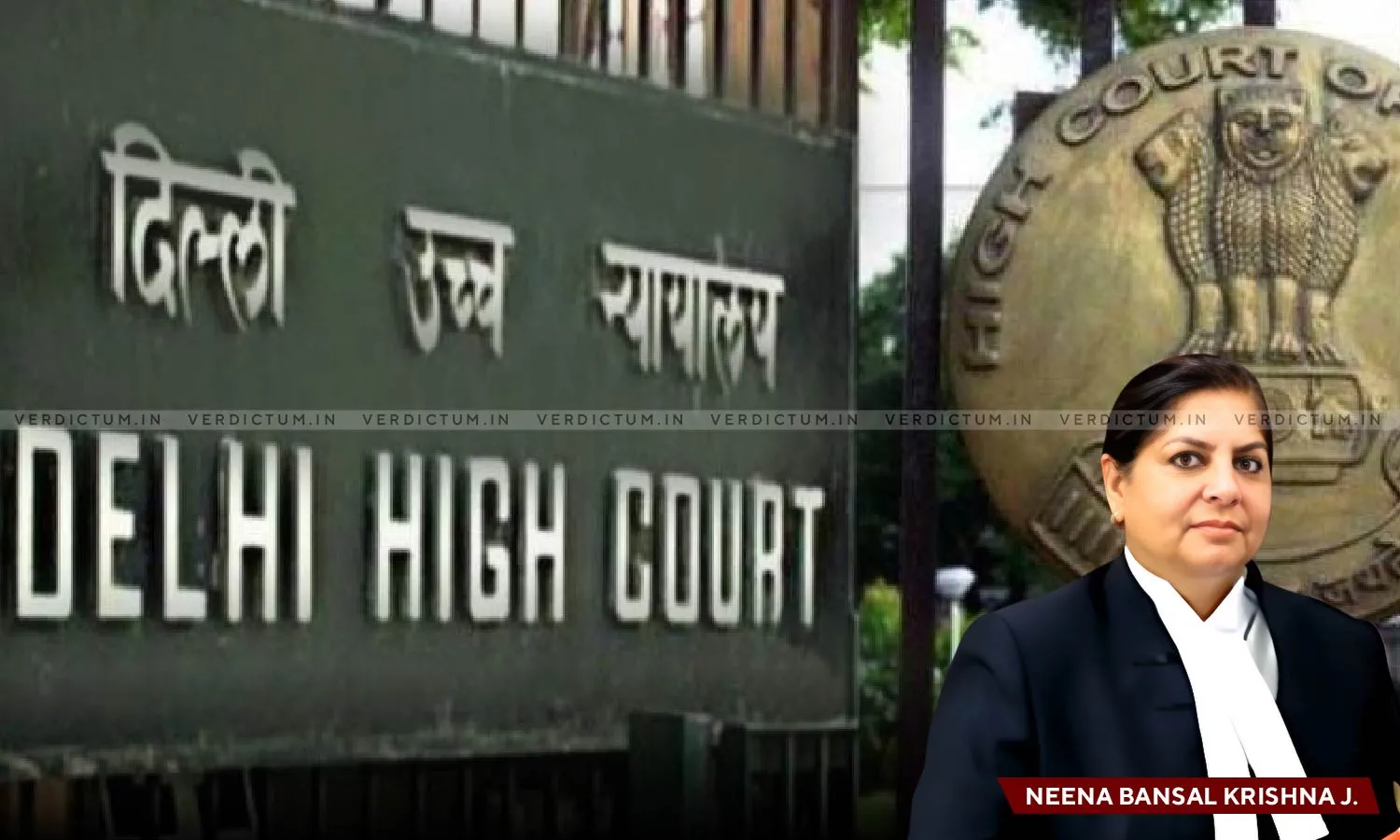"Freedom Of Press Is Heart Of Social & Political Intercourse": Delhi HC Dismisses Defamation Suits Against Hindustan Times Over 2002 News Reports
The Delhi High Court dismissed two defamation suits filed by Mahaveer Singhvi, a 1999 batch Indian Foreign Service officer, against Hindustan Times newspaper for two articles published in 2002.
The Single-Judge Bench of Justice Neena Bansal Krishna stated that the articles in question were not inherently defamatory.
The suits, filed by Singhvi in 2007, sought damages of Rs. 5 crore each for alleged damage to his reputation. The first suit was directed against Hindustan Times (English edition) and named Vir Sanghvi and Saurabh Shukla, the then Editor and correspondent, respectively. Singhvi contested an article titled "IFS Probationer Sacked After Tapes Prove Misconduct," published on July 19, 2002. The second suit targeted Hindustan newspaper (Hindi edition), with Mrinal Pandey and Rakesh Kumar Singh, the Editor and Reporter at the time, named as defendants. Singhvi objected to an article published on July 21, 2002, titled "Shadi Se Inkar Karne Par Adhikari Ne Yuvti Ka Jeena Haram Kiya."
Singhvi's argument was that the assertion that both articles violated journalistic norms set by the Press Council of India. He contended that the publications contained false and defamatory statements regarding his alleged misconduct and use of abusive language, based on conversations that he claimed never occurred. Singhvi also argued that the newspapers acted with malicious intent to tarnish his reputation.
The Court emphasized the delicate balance between freedom of the press and an individual's right to reputation. The Single-Judge Bench also highlighted that in a democratic society, the press plays a vital role as a public educator, disseminating information crucial for informed decision-making by the electorate. "Through the concept of unjust harm to reputation, defamation laws tend to measure the right to freedom of expression against the right of a person to maintain their reputation. Therefore, an analysis of the law of defamation also requires an understanding of right to freedom of speech and expression, right to reputation of an individual and right of citizens to information in a Democratic society," the Court said.
The Court further remarked, "In today's free world, freedom of Press is the heart of social and political intercourse. The press has now assumed the role of the public educator making formal and non-formal education possible in a large scale particularly in the developing world, where television and other kinds of modern communication are not still available for all sections of society. The purpose of the Press is to advance the public interest by publishing facts and opinions without which a democratic electorate cannot make responsible judgments."
Regarding the article published in the English edition of Hindustan Times, the Court found that it neutrally reported an incident involving Singhvi. The article described an inquiry into a tape containing objectionable language allegedly attributed to Singhvi, leading to his discharge while on probation. The Court noted that the article did not make malicious or false allegations against Singhvi and accurately reported the circumstances surrounding his discharge based on verified information.
"The article was a fair comment based on credible sources and did not constitute defamation," the Court concluded.
Turning to the Hindi edition of Hindustan newspaper, the Court similarly observed that the article reported on verified information related to Singhvi's dismissal from the Ministry of External Affairs. The court determined that the publication acted in good faith to fulfill its duty of informing the public about matters of public interest.
"It is evident that the articles reported the news in a neutral and truthful manner, without malice," the Court said.
The Court underscored the journalistic responsibility to report accurately and responsibly while safeguarding the freedom of the press. It rejected Singhvi's contention that the articles were defamatory and upheld the principle that reporting on matters of public concern, even if critical, does not necessarily constitute defamation.
"The right of public to information and the duties of the Press to make the information to people at large is circumscribed by the limitation of not disseminating wrong information or to present the news in a manner causing harm to the reputation of the individuals. This responsibility is more stringent for the Media and the Press simply because of its outreach; once a thing gets published, now only is it available at all times but it reaches the entire group of people who may access the media whereby causing harm which may be irreparable," the Court said.
The Court reaffirmed the importance of upholding press freedom in a democratic society. It noted that the media plays a crucial role in fostering transparency and accountability by bringing information to the public domain. "It may be thus, concluded that the Newspaper Articles have in the neutral/truthful manner have simply reported the news on the basis of the information collected from the verified sources," the Court said.
Furthermore, the Court said, "Balancing the right of information of the public with the duty of the Media of truthful reporting and the individual right of protection of his reputation, it is held that the Articles which are the subject matter of the two suits, are not per se defamatory."
Consequently, the Court ordered, "..the suit of the plaintiff is hereby dismissed. He is, however, directed to make good the deficit Court Fee within six weeks. In case he fails to pay the requisite Court Fee, the Registrar General may initiate the proceedings for recovery of the Court Fee as the Land Revenue."
Cause Title: Mahaveer Singhvi v. Hindustan Times Limited and Others [Neutral Citation: 2024:DHC: 4749]
Appearance:-
Plaintiff: Advocates Aadil Singh Boparai, Sumer Singh Boparai, Sadiq Noor
Defendant: Advocates M. Dutta, Aditya Guha
Click here to read/download the Judgment




